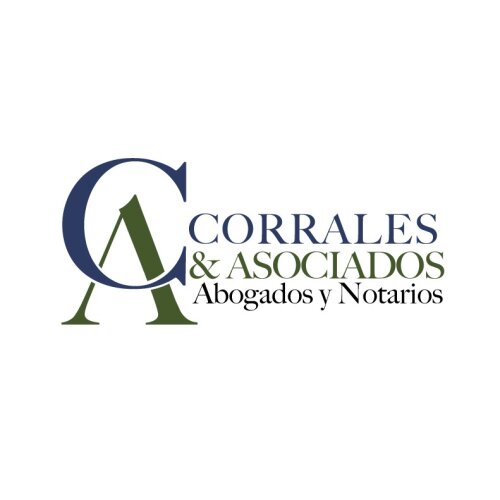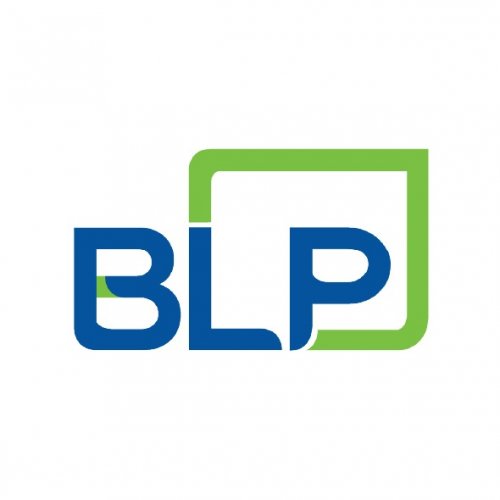Best Conveyancing Lawyers in Managua
Share your needs with us, get contacted by law firms.
Free. Takes 2 min.
Free Guide to Hiring a Real Estate Lawyer
List of the best lawyers in Managua, Nicaragua
About Conveyancing Law in Managua, Nicaragua
Conveyancing is the legal process of transferring property ownership from one person or entity to another. In Managua, Nicaragua, and across the country, conveyancing plays an essential role whenever land, homes, commercial properties, or plots are bought, sold, inherited, or gifted. The process involves drafting and signing legal documents, verifying ownership, clearing debts or liens, registering the transaction with appropriate authorities, and ensuring compliance with Nicaraguan law. Specialized lawyers known as Notarios Públicos typically oversee conveyancing tasks, helping parties avoid disputes and facilitating smooth property transactions.
Why You May Need a Lawyer
Engaging a lawyer for conveyancing in Managua is highly advised due to the complex nature of property transactions. You may need legal help in situations such as:
- Buying or selling a home or land
- Transferring property through inheritance or gifts
- Resolving property disputes or clarifying boundaries
- Verifying the legal status of a property
- Complying with local property ownership restrictions for foreigners
- Assuring debts or encumbrances are cleared before completing a transaction
- Preparing or reviewing sale agreements and title deeds
- Registering property at the Public Registry (Registro Público de la Propiedad)
- Releasing or acquiring a mortgage or lien
- Navigating inheritance laws or divorce-related property division
A lawyer can provide guidance, prevent costly mistakes, and protect your legal rights throughout the conveyancing process.
Local Laws Overview
Conveyancing in Managua is governed by the Nicaraguan Civil Code, special property laws, and administrative regulations. Critical aspects include:
- Role of the Notario Público: Only certified Notaries can prepare and authenticate property transfer deeds. Their involvement is required for legality.
- Property Verification: Checking the property title at the Public Registry is mandatory to confirm ownership, detect encumbrances, and avoid fraud.
- Foreign Ownership: Although foreigners can generally own property, restrictions may apply near borders or coasts. Legal advice is crucial if you are not a Nicaraguan citizen.
- Transfer Taxes and Fees: Real estate transfers incur various taxes, including transfer tax (alcabala) and registration fees. These must be paid before final registration.
- Inheritance and Family Law: Special rules affect inherited property and divorce settlements, requiring compliance with Nicaraguan succession and family law.
- Registration: Property transfers are only effective against third parties after registration at the local Public Registry office.
- Due Diligence: Buyers are advised to thoroughly verify zoning, prior debts, court disputes, and municipal permits associated with the property.
Frequently Asked Questions
What does a conveyancing lawyer do in Managua?
A conveyancing lawyer in Managua oversees the legal aspects of property transfers. They draft and authenticate contracts, perform due diligence, resolve legal issues, and ensure proper registration of the property ownership.
Can foreigners purchase property in Managua?
Yes, foreigners can purchase property but must comply with special restrictions on certain types of land, especially near borders or coastal areas. Legal advice is essential in these cases.
What documents are required for a property transfer?
Key documents include the property title, proof of payment of municipal taxes, identification documents, purchase agreement, and past deeds. Your lawyer will advise on all required materials.
How do I check if a property is free from debts or liens?
A title search at the Public Registry will reveal if the property is encumbered by debts, mortgages, or other claims. Your lawyer handles this search during the conveyancing process.
What are the main costs involved in conveyancing?
Costs include legal fees, notary fees, transfer taxes, and Public Registry fees. Your lawyer will provide an estimate based on the transaction value and property location.
What happens if the property is disputed or has unclear ownership?
Transactions should not proceed if ownership is unclear or disputed. Your lawyer can advise on resolving legal disputes or negotiating settlements before any transfer.
Is a verbal agreement sufficient for property sales?
No. Under Nicaraguan law, property transfers must be in writing, signed before a Notario Público, and registered to be legally valid.
How long does the conveyancing process take?
The timeline can vary depending on property location, title complexity, and Public Registry workload. Typically, it takes several weeks to complete all legal and administrative steps.
Can I handle conveyancing without a lawyer?
While possible, it is highly discouraged. The process is complex and mistakes can have significant legal and financial consequences. Legal representation safeguards your interests.
What is the role of the Public Registry in conveyancing?
The Public Registry records all property transfers. Registration is critical to make your ownership public and enforceable against third parties.
Additional Resources
If you need help or more information about conveyancing in Managua, consider consulting:
- The Nicaraguan Bar Association (Colegio de Abogados de Nicaragua)
- Public Registry of Property (Registro Público de la Propiedad)
- Ministry of Housing and Urban Affairs (Ministerio de Vivienda y Asentamientos Humanos)
- Municipal offices in Managua for local taxes and zoning issues
- Reputable law firms specializing in real estate and property law
These resources can help you clarify property status, locate qualified lawyers, and better understand your legal obligations.
Next Steps
If you are considering buying, selling, or transferring property in Managua, Nicaragua, it is important to begin with professional legal guidance. Here is how you can proceed:
- Consult a qualified conveyancing lawyer familiar with local property law.
- Request a preliminary review of the property title, history, and any legal restrictions.
- Obtain a detailed estimate of all associated costs and taxes.
- Gather required documents as advised by your lawyer.
- Ensure all agreements are formalized in writing and executed before a certified Notario Público.
- Make all necessary payments for taxes and fees before registration.
- Complete the transaction with proper registration at the Public Registry.
Taking these steps with experienced legal support will help ensure your property transaction is safe, legal, and efficiently managed.
Lawzana helps you find the best lawyers and law firms in Managua through a curated and pre-screened list of qualified legal professionals. Our platform offers rankings and detailed profiles of attorneys and law firms, allowing you to compare based on practice areas, including Conveyancing, experience, and client feedback.
Each profile includes a description of the firm's areas of practice, client reviews, team members and partners, year of establishment, spoken languages, office locations, contact information, social media presence, and any published articles or resources. Most firms on our platform speak English and are experienced in both local and international legal matters.
Get a quote from top-rated law firms in Managua, Nicaragua — quickly, securely, and without unnecessary hassle.
Disclaimer:
The information provided on this page is for general informational purposes only and does not constitute legal advice. While we strive to ensure the accuracy and relevance of the content, legal information may change over time, and interpretations of the law can vary. You should always consult with a qualified legal professional for advice specific to your situation.
We disclaim all liability for actions taken or not taken based on the content of this page. If you believe any information is incorrect or outdated, please contact us, and we will review and update it where appropriate.










